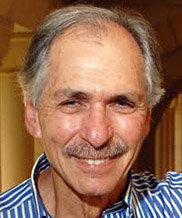Future Proofing Training Programs & the Economics of Education
 Martin Carnoy is the Vida Jacks Professor of Education at Stanford University School of Education. Dr. Carnoy is a labor economist with a special interest in the relation between the economy and the educational system. To this end, he studies the US labor market, including the role in that relation of race, ethnicity, and gender, the US educational system, and systems in many other countries. He uses comparative analysis to understand how education influences productivity and economic growth, and, in turn, how and why educational systems change over time, and why some countries educational systems are marked by better student performance than others’. In his presentation, Martin examines…
Martin Carnoy is the Vida Jacks Professor of Education at Stanford University School of Education. Dr. Carnoy is a labor economist with a special interest in the relation between the economy and the educational system. To this end, he studies the US labor market, including the role in that relation of race, ethnicity, and gender, the US educational system, and systems in many other countries. He uses comparative analysis to understand how education influences productivity and economic growth, and, in turn, how and why educational systems change over time, and why some countries educational systems are marked by better student performance than others’. In his presentation, Martin examines…
1. Investment in training is an integral part of any capital investment program—these are “complementary” investment goods required to choose, implement, and operate the infrastructure of the future.
2. The kinds of investments required to modernize developing countries’ (and even the U.S.’s) infrastructure will be highly sophisticated, high technology driven. Designing the systems, choosing the new technology, implementing it, installing, operating, and maintaining it—all these will require high levels of human capital and therefore the training to produce it.
3. The first level of training required is of decision makers, who will design the most effective long-term solutions for nations’ inadequate and complex transportation systems and how to choose the most appropriate, most cost-effective physical capital to modernize the systems.
4. The second level of training required is for the highly-trained engineers needed to work with the decision makers to implement optimally the technologically advanced physical capital.
5. The third level of training required is for the technicians who will install, operate, and maintain the technologically advanced physical capital.